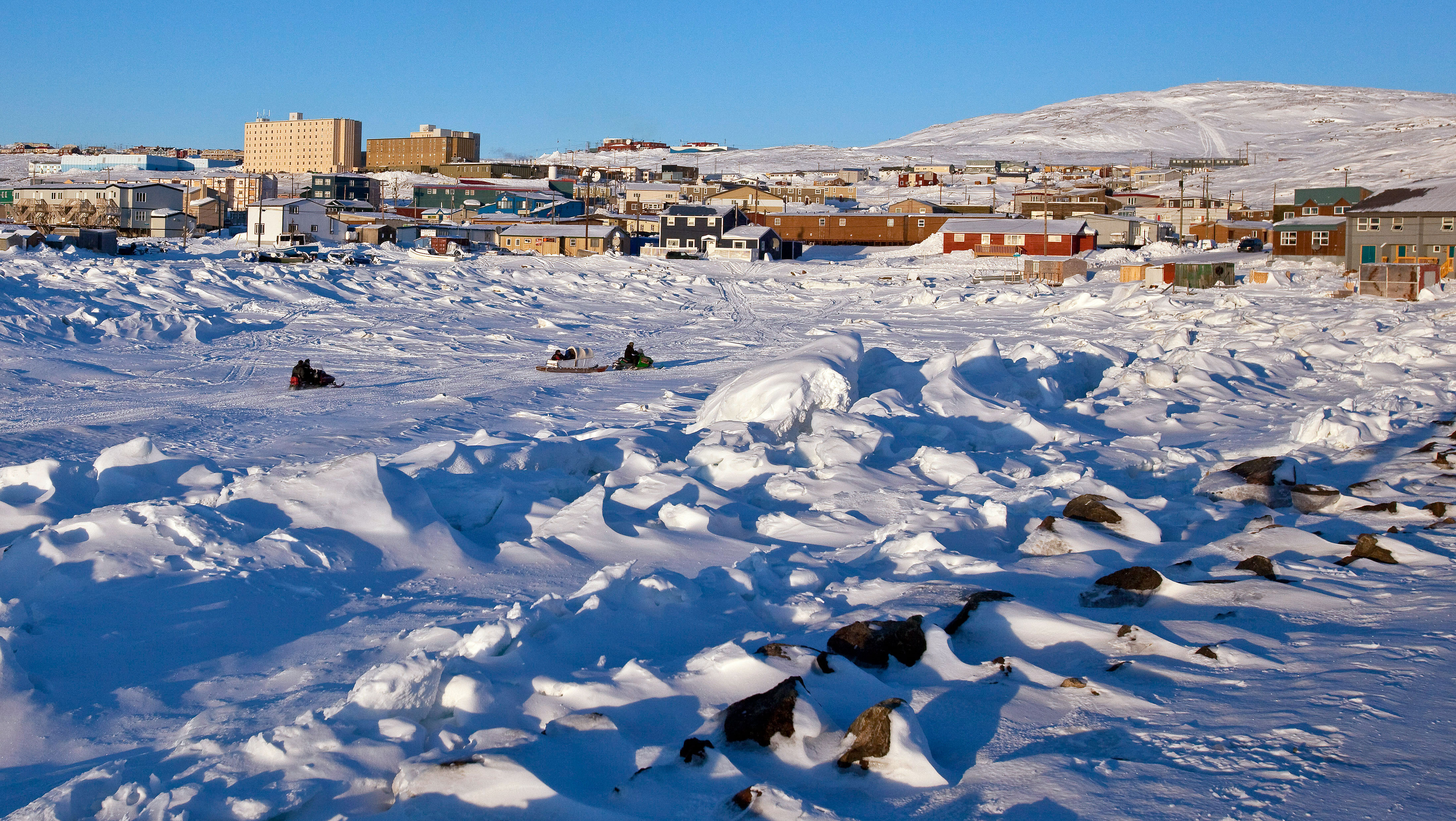Coronavirus: how Arctic Canada kept Covid-19 at bay
The province of Nunavuk has recorded no community transmission of coronavirus

A free daily email with the biggest news stories of the day – and the best features from TheWeek.com
You are now subscribed
Your newsletter sign-up was successful
In normal times, Canada’s northernmost province of Nunavut is one of Earth’s most inhospitable environments.
Almost 15 times the size of England, it is home to just 36,000 people. But in 2020, the Arctic territory has an advantage over the rest of the world.
“So far, with the exception of a few cases at its mines brought in from southern workers, Nunavut has remained Covid-19 free,” says local TV station CKPG Today.
The Week
Escape your echo chamber. Get the facts behind the news, plus analysis from multiple perspectives.

Sign up for The Week's Free Newsletters
From our morning news briefing to a weekly Good News Newsletter, get the best of The Week delivered directly to your inbox.
From our morning news briefing to a weekly Good News Newsletter, get the best of The Week delivered directly to your inbox.
Three weeks ago, the Nunavut government “relaxed public health measures for recreation, leisure and community groups”, as Nunatsiaq News reported at the time. Group fitness classes have restarted, households can mix and “larger gatherings” of up to 100 people are allowed at places of worship, theatres and community halls.
The return to something like normality has been a long time coming.
In March, as the new coronavirus swept around the world and borders began to close, “officials in Nunavut decided they too would take no risks”, the BBC reports. “They brought in some of the strictest travel regulations in Canada, barring entry to almost all non-residents.”
Nunavut’s mines, which are heavily dependent on outside contract workers, were seen as a weak link in the province’s defences. To prevent cross-infections, local workers were sent home and incoming contractors were required to spend 14 days in quarantine at hotels in southern Canada.
A free daily email with the biggest news stories of the day – and the best features from TheWeek.com
The cautious approach resulted from a fear that Inuit communities would be as vulnerable to Covid-19 as they were to Spanish flu a century earlier. “The effects were most devastating in Labrador, where the disease killed close to one third of the Inuit population and forced some communities out of existence,” says Newfoundland-based news website Heritage.
In some Inuit communities, “up to 90% of the population died and the mortality rates were some of the highest in the world”, says BBC Future magazine. “Stories emerged of packs of stray dogs feasting on the bodies of the dead.”
While Nunavut has been spared such a catastrophe during the 2020 pandemic, its chief public health officer Dr Michael Patterson has said people living in the province should not assume Covid will be kept out “indefinitely”.
“I wouldn’t have bet that it would stay this way for this long,” Patterson told the BBC.
Holden Frith is The Week’s digital director. He also makes regular appearances on “The Week Unwrapped”, speaking about subjects as diverse as vaccine development and bionic bomb-sniffing locusts. He joined The Week in 2013, spending five years editing the magazine’s website. Before that, he was deputy digital editor at The Sunday Times. He has also been TheTimes.co.uk’s technology editor and the launch editor of Wired magazine’s UK website. Holden has worked in journalism for nearly two decades, having started his professional career while completing an English literature degree at Cambridge University. He followed that with a master’s degree in journalism from Northwestern University in Chicago. A keen photographer, he also writes travel features whenever he gets the chance.
-
 ‘Restaurateurs have become millionaires’
‘Restaurateurs have become millionaires’Instant Opinion Opinion, comment and editorials of the day
-
 Earth is rapidly approaching a ‘hothouse’ trajectory of warming
Earth is rapidly approaching a ‘hothouse’ trajectory of warmingThe explainer It may become impossible to fix
-
 Health insurance: Premiums soar as ACA subsidies end
Health insurance: Premiums soar as ACA subsidies endFeature 1.4 million people have dropped coverage
-
 A Nipah virus outbreak in India has brought back Covid-era surveillance
A Nipah virus outbreak in India has brought back Covid-era surveillanceUnder the radar The disease can spread through animals and humans
-
 Covid-19 mRNA vaccines could help fight cancer
Covid-19 mRNA vaccines could help fight cancerUnder the radar They boost the immune system
-
 The new Stratus Covid strain – and why it’s on the rise
The new Stratus Covid strain – and why it’s on the riseThe Explainer ‘No evidence’ new variant is more dangerous or that vaccines won’t work against it, say UK health experts
-
 RFK Jr. vaccine panel advises restricting MMRV shot
RFK Jr. vaccine panel advises restricting MMRV shotSpeed Read The committee voted to restrict access to a childhood vaccine against chickenpox
-
 RFK Jr. scraps Covid shots for pregnant women, kids
RFK Jr. scraps Covid shots for pregnant women, kidsSpeed Read The Health Secretary announced a policy change without informing CDC officials
-
 New FDA chiefs limit Covid-19 shots to elderly, sick
New FDA chiefs limit Covid-19 shots to elderly, sickspeed read The FDA set stricter approval standards for booster shots
-
 RFK Jr.: A new plan for sabotaging vaccines
RFK Jr.: A new plan for sabotaging vaccinesFeature The Health Secretary announced changes to vaccine testing and asks Americans to 'do your own research'
-
 Five years on: How Covid changed everything
Five years on: How Covid changed everythingFeature We seem to have collectively forgotten Covid’s horrors, but they have completely reshaped politics